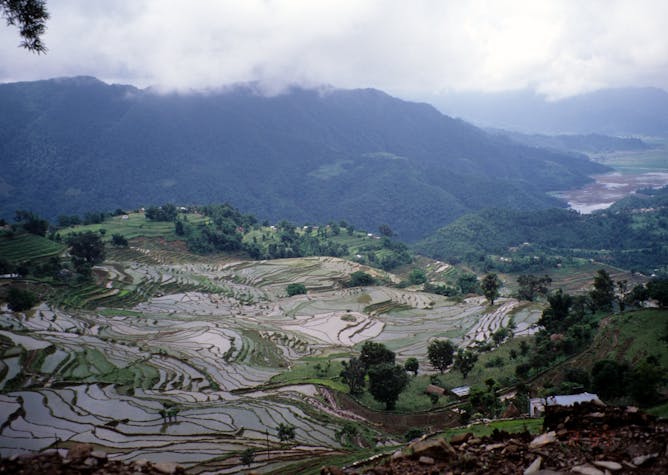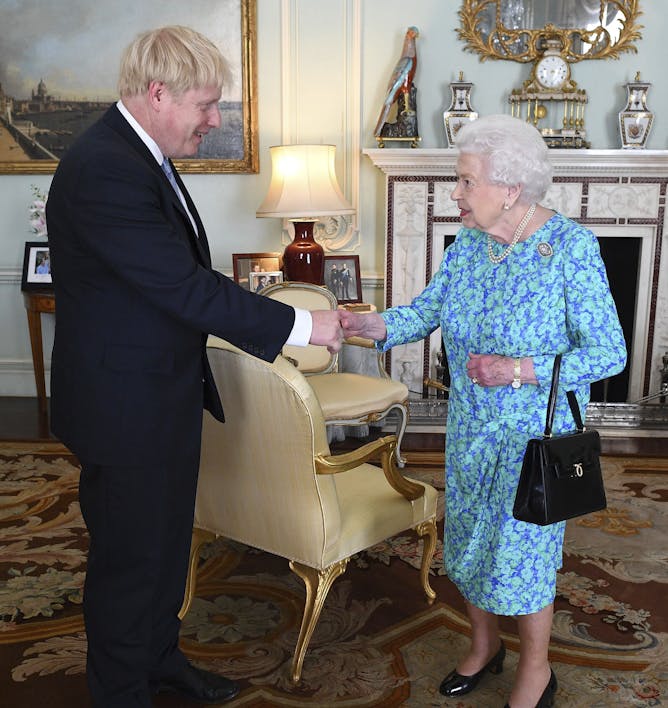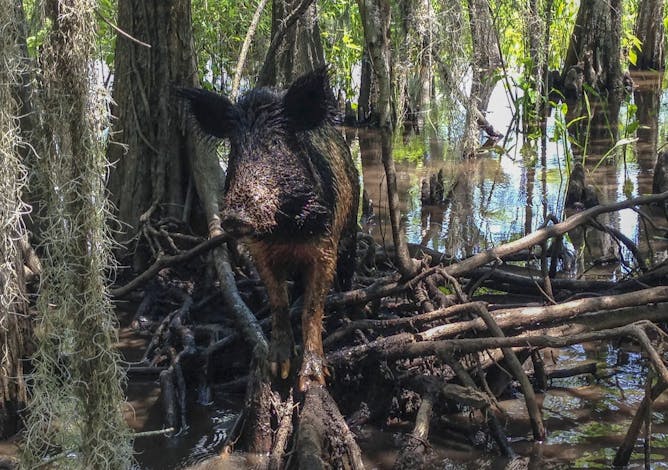
People have been modifying Earth – as in these rice terraces near Pokhara, Nepal – for millennia.
Erle C. Ellis
Ben Marwick, University of Washington; Erle C. Ellis, University of Maryland, Baltimore County; Lucas Stephens, Max Planck Institute for the Science of Human History; Nicole Boivin, Max Planck Institute for the Science of Human History
Hundreds of archaeologists provided on-the-ground data from across the globe, providing a new view of the long and varied history of people transforming Earth's environment.
|

U.K. Prime Minister Boris Johnson shakes hands with Queen Elizabeth II.
Victoria Jones/Pool via AP
Laura Beers, American University
The U.K. prime minister sought to suppress Parliamentary opponents, saying he – not they – represents the will of the British people. It put Queen Elizabeth II in a real bind.
|

Wild boar in a swamp in Slidell, Louisiana.
AP Photo/Rebecca Santana
Marcus Lashley, Mississippi State University
Feral pigs are a destructive invasive species across much of North America. In a recent study, forest patches where feral pigs were present had fewer mammal and bird species than swine-free zones.
|
|
-
Ken Chitwood, University of Florida
Hosay, a religious ritual performed by Trinidadian Muslims, combines the somber Islamic observance of Ashura, brought by immigrant Indians, and the joy of Trinidad's famous carnival.
-
Jonathan Coopersmith, Texas A&M University
In Asian countries, many people wield umbrellas to protect them from the sun. American women used to as well – but then stopped.
-
Lindsay J. Peterson, University of South Florida; Kathryn Hyer, University of South Florida
Hurricane season presents special dangers for elders, particularly for those in nursing homes and assisted living. Research indicates sheltering-in-place may actually be less risky than evacuating, at times.
-
Jonah Estess, American University
The color of American money goes back to the British colonies.
|
|